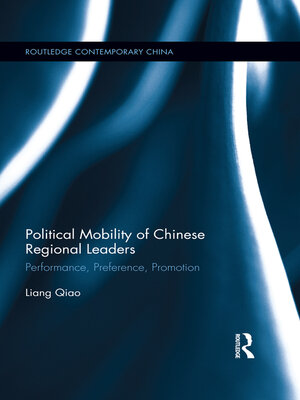Political Mobility of Chinese Regional Leaders
ebook ∣ Performance, Preference, Promotion · Routledge Contemporary China
By Liang Qiao

Sign up to save your library
With an OverDrive account, you can save your favorite libraries for at-a-glance information about availability. Find out more about OverDrive accounts.
Find this title in Libby, the library reading app by OverDrive.



Search for a digital library with this title
Title found at these libraries:
| Library Name | Distance |
|---|---|
| Loading... |
A monarch is usually born, a member of parliament or a president is usually elected, but a regional leader in China is usually orchestrated to replace his or her predecessor through an opaque process and for reasons not normally made public. The professional trajectories of Chinese regional leaders are mysterious in many ways. Their promotions and demotions can be "predictable" in terms of their age, gender, nationality, education, factions, and previous engagements in the political system. Yet, speaking of their capability, performance, opportunities and arrangements, their future can also be "unexpected". Such arrangements are always originated from the Organization (zuzhi) which represents the Chinese Communist Party. What are the factors the organization considers in order to make its final decisions on nominating and appointing a regional leader?
Today's regional leaders of China will very likely become the central leaders of China in the future. By making an empirical analysis of Chinese regional leaders' political mobility, Qiao establishes a descriptive political mobility model that reveals leadership trajectories in Chinese politics.







